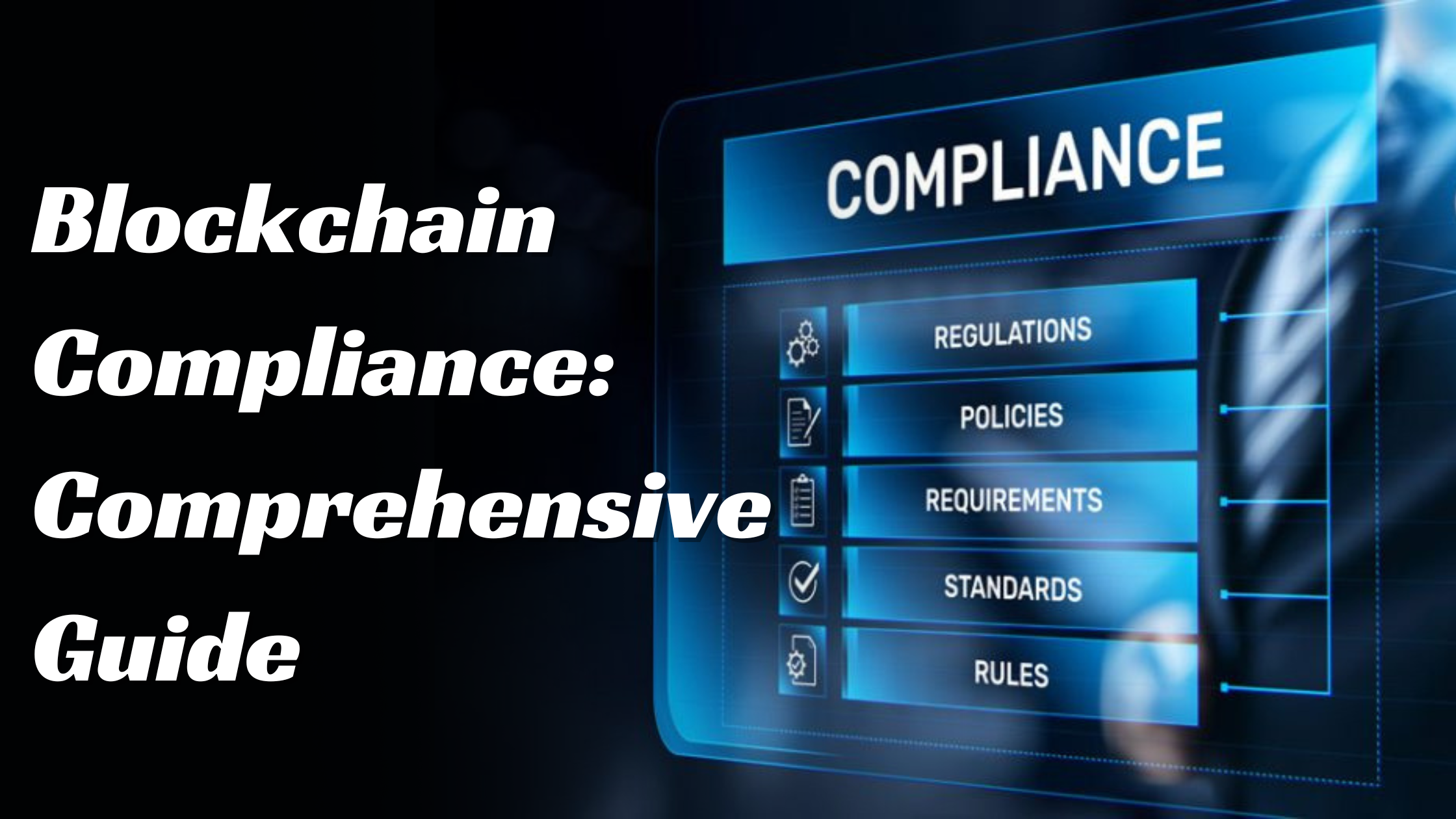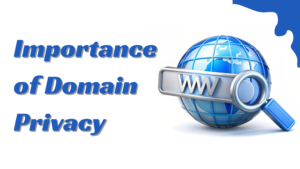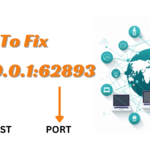Understanding Blockchain Compliance: A Comprehensive Guide
Dive into the world of blockchain compliance with our comprehensive guide. Navigating regulatory frameworks can be complex, but understanding blockchain’s role in compliance is crucial for businesses today. Explore key concepts and practical insights to ensure your organization meets regulatory standards effectively. Discover how blockchain technology revolutionises compliance processes across industries, offering transparency, security, and efficiency, unlike traditional methods. Gain valuable strategies to integrate blockchain solutions seamlessly into your compliance framework, enhancing operational reliability and regulatory adherence.
Introduction to Blockchain Compliance
In today’s digital age, blockchain technology has emerged as a transformative force across various industries, offering promises of enhanced security, transparency, and efficiency. Its decentralized and immutable ledger fundamentally changes how transactions are recorded and verified. Unlike traditional centralized systems, blockchain operates on a distributed network where transactions are transparently logged securely and tamper-proof. This unique feature of blockchain enhances data integrity and reduces the risks of fraud and manipulation, making it a preferred choice for applications requiring high trust and accountability.
However, alongside its innovative potential, blockchain introduces complexities in regulatory compliance. The decentralized nature of blockchain challenges traditional regulatory frameworks designed for centralized systems. Regulatory bodies worldwide are grappling with how to adapt existing laws to accommodate blockchain’s unique characteristics while ensuring consumer protection, financial stability, and adherence to legal standards. Data privacy, financial transparency, anti-money laundering (AML), and know-your-customer (KYC) requirements become critical considerations for businesses leveraging blockchain technology.
Despite these challenges, blockchain also presents opportunities to streamline compliance processes. By providing a transparent and auditable record of transactions, blockchain can simplify regulatory reporting and auditing procedures. Smart contracts, a feature of blockchain technology, automate compliance tasks by executing predefined rules and conditions, thereby reducing manual errors and enhancing operational efficiency. These capabilities make blockchain a tool for innovation and a catalyst for reshaping regulatory compliance frameworks more securely and efficiently.
As businesses explore blockchain integration into their operations, understanding its implications for regulatory compliance becomes paramount. Embracing blockchain’s transformative potential while navigating regulatory complexities requires a balanced approach combining technological innovation and regulatory diligence. This proactive stance ensures compliance with evolving standards and positions businesses to leverage blockchain’s benefits effectively in today’s rapidly changing digital landscape.
The Intersection of Blockchain and Compliance

Blockchain’s decentralized nature and cryptographic security mechanisms make it inherently resistant to tampering and fraud, setting it apart as a powerful tool for enhancing compliance processes across various industries. Blockchain offers significant finance, healthcare, and supply chain management advantages, where data accuracy and transparency are critical.
The decentralized ledger ensures that transactions are recorded and verified by a network of participants rather than a central authority. This transparency reduces the risk of fraudulent activities such as double-spending or unauthorized alterations to transaction records. Each transaction is cryptographically linked to the previous one, creating an immutable chain of highly secure and tamper-proof data.
In finance, blockchain’s application ranges from facilitating secure and transparent transactions to enabling real-time auditing and compliance monitoring. Financial institutions can leverage blockchain to streamline regulatory reporting processes, ensuring accurate and timely submissions while reducing the administrative overhead associated with compliance tasks. Smart contracts, programmable agreements that automatically execute and enforce terms when predefined conditions are met, enhance efficiency by automating compliance-related activities.
Similarly, blockchain’s ability to securely store and share sensitive patient data in healthcare while maintaining privacy compliance under regulations like HIPAA (Health Insurance Portability and Accountability Act) is revolutionary. It enables interoperability between disparate healthcare systems, allowing seamless and secure exchange of medical records and improving care coordination.
Supply chain management also benefits from blockchain by providing a transparent and traceable record of goods and transactions from manufacturer to consumer. This transparency reduces the risk of counterfeit products, ensures compliance with regulatory standards such as fair trade practices or environmental regulations, and enhances supply chain efficiency by minimizing delays and disputes.
Blockchain technology empowers organizations to comply with regulatory requirements more effectively and innovate and transform their operations. By enhancing data integrity, streamlining processes, and reducing costs associated with compliance, blockchain enables businesses to navigate complex regulatory landscapes with greater confidence and efficiency.
Key Considerations in Blockchain Compliance

Understanding Regulatory Frameworks
Navigating blockchain compliance begins with clearly understanding relevant regulatory frameworks governing your industry. Regulations vary significantly across jurisdictions and sectors, impacting how blockchain applications are developed, implemented, and maintained. For instance, financial services must adhere to stringent anti-money laundering (AML) and know-your-customer (KYC) regulations. At the same time, healthcare sectors focus on data privacy and security standards like the Health Insurance Portability and Accountability Act (HIPAA).
Compliance Challenges and Solutions
Implementing blockchain solutions involves addressing several compliance challenges, including scalability, interoperability, and regulatory ambiguity. Scalability remains a critical concern as blockchain networks expand and process increasing transactions. Interoperability issues arise when integrating blockchain with existing IT infrastructure and ensuring seamless data exchange across different platforms. Moreover, regulatory ambiguity necessitates proactive engagement with legal experts and regulatory bodies to ensure compliance strategies align with evolving standards and guidelines.
Role of Blockchain Compliance Companies
Blockchain compliance companies are pivotal in helping organizations navigate regulatory complexities and implement compliant blockchain solutions. These specialized firms offer expertise in regulatory analysis, technology integration, and audit capabilities tailored to blockchain applications. By partnering with blockchain compliance companies, businesses can mitigate compliance risks, foster innovation, and maintain competitive advantage in their respective industries.
Summing Up Blockchain Compliance
In conclusion, understanding blockchain compliance is essential for organizations seeking to harness the transformative potential of blockchain technology while adhering to regulatory standards. By embracing blockchain’s transparency and security features, businesses can streamline compliance processes, enhance operational efficiencies, and foster stakeholder trust. However, achieving blockchain compliance requires ongoing vigilance, proactive engagement with regulatory bodies, and strategic partnerships with blockchain compliance experts. As regulatory landscapes evolve, staying informed and adaptable will be vital to navigating the complexities of blockchain compliance effectively.

















